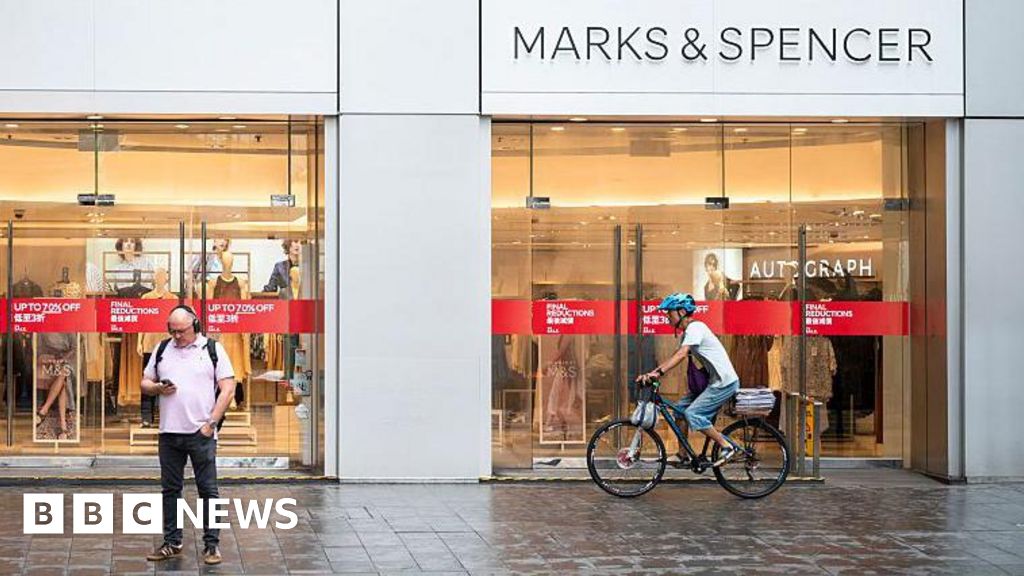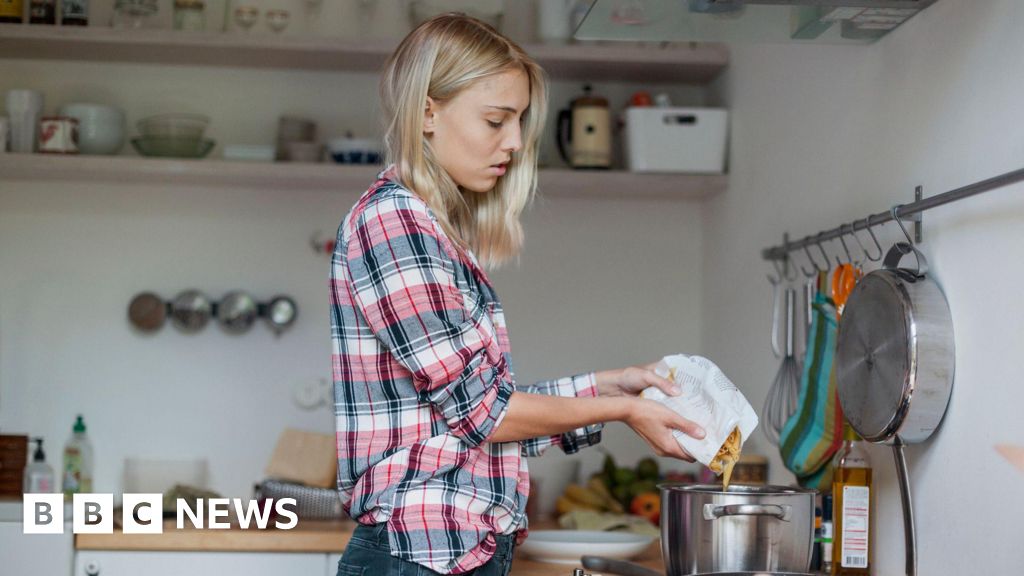ARTICLE AD BOX
By David Silverberg
Business reporter
Image source, Foodsteps
Image caption,One carbon-labelling scheme, pictured, is offered by a start-up tech firm called Foodsteps
Lou Palmer-Masterton, the owner of three vegan restaurants, says it was a logical progression to add carbon labelling to the menus.
All three branches of her Stem & Glory mini-chain were already using only renewable energy, and participating in reusable lunchbox and cup schemes, but she wanted to go one step further.
So, now the menus at the two outlets in London, and one in Cambridge, are set to include a carbon dioxide emission score for each and every item.
"This is something I've thought about for a while, and even though all our products are plant-based, I was still curious about the impact they have on the environment," says Ms Palmer-Masterton.
"This movement [carbon labelling] is exploding right now, and it makes sense."
Image source, Lou Palmer-Masterton
Image caption,Lou Palmer-Masterton says the public wants to see carbon labels
To work out, and display, the carbon scores for each of its dishes, Stem & Glory has gone to a UK start-up tech firm called Foodsteps.
Launched in 2020, the Foodsteps' website and app allows food firms and restaurants to calculate the carbon dioxide produced by a particular product or dish "from farm to fork".
Foodsteps' software system contains a database of carbon dioxide release figures, including calculations of everything from various fertilisers, to the method of delivery of raw materials, the cooking process, the manufacturing of any packaging, and any refrigerated or frozen storage.
To gather all this data Foodsteps says it has used "thousands of peer-reviewed scientific studies, alongside our own primary research".
Restaurants and food firms who pay to sign-up to its scheme can then display their Foodsteps carbon scores on their menus or packaging, from A (very low) to E (very high). They can also add a QR code to link to a webpage focusing on the other environmental credentials of the food item in question.
Image source, Getty Images
Image caption,To get an accurate carbon score for a food item you have to work out the impact of every stage of production
The founder and chief executive of Foodsteps - Anya Doherty - came up with the idea for the business when she was researching sustainable food systems as a postgraduate at the University of Cambridge.
She says the Foodsteps system goes into "micro" detail. "It's a puzzle to figure out [the carbon score of a food item] because it's about understanding the different life cycles a food goes through.
"For example, every crop acts in a different way, depending on where it's located. And what kind of fertiliser do they use?".
As global leaders continue to meet at the United Nations Climate Change Conference, or Cop26, in Glasgow, the issue of reducing carbon dioxide emissions has never been more prescient.
It is particularly important for the food sector, as one report earlier this year said that world food production may account for as much as 40% of all greenhouse gas emissions from human activities.
Yet, one issue for companies keen to adopt a carbon labelling system is which system they should select, as there are now a number of different schemes to choose from.
In the UK they include the before mentioned Foodsteps, which has funding from government agency Innovate UK, and currently has 20 or so clients.
Also UK-based is the long-established carbon labelling scheme provided by the UK's Carbon Trust. This organisation was launched by the UK government back in 2011, but is now a private company, and its labelling is offered globally.
In addition, there is a new labelling scheme offered by a not-for-profit organisation called Foundation Earth, which registers carbon emissions as part of a wider environmental impact score. This is backed by most of the UK's main supermarkets, and Nestle.
Meanwhile, food giant Unilever, the maker of everything from Hellmann's mayonnaise, to Ben & Jerry's ice cream, and Persil washing power, is working on its own carbon labelling.
Image source, Anya Doherty
Image caption,Anya Doherty says it is a "puzzle" to work out an item's carbon score
A spokesperson for the Carbon Trust says, the organisation hopes that the increasing number of carbon labelling schemes all follow correct calculation methods.
"We recognise that there are a growing number of carbon labelling schemes currently on offer, but in order to maintain rigorous standards, we would like to see consistency with product carbon foot-printing with a cradle-to-grave approach for consumer facing products.
"This includes using high quality, transparent, primary data when making an analysis, as well as using internationally recognised methodologies to measure carbon footprints."
New Tech Economy is a series exploring how technological innovation is set to shape the new emerging economic landscape.
What looks certain is that a majority of consumers would welcome carbon labelling, as a report for the Carbon Trust found.
Its 2020 survey of more than 10,000 adults across France, Germany, Italy, the Netherlands, Spain, Sweden, the UK and the US discovered that 67% were in favour of the labelling.
Christopher Kong, boss of UK meat-alternative brand Better Nature, says he hopes that the transparency of carbon labelling will help stop the wider food industry being "flooded with untruths, 'green washing', and unfulfilled promises".
Better Nature's products, which are made from tempeh, fermented whole soybeans, use Foodsteps' labelling, and score an "A".
Image source, Better Nature
Image caption,Christopher Kong, pictured with co-founder Elin Roberts, has seen his Better Nature products get the best possible carbon scores
Prof Mohini Sain of the University of Toronto is a global expert in the development of biodegradable food packaging. His concern regarding carbon labelling is how effective it can possibly be without governments legislating to force all companies to put the information on all their products.
"Will businesses only label their A-grade products and not label the ones that get an 'F'?" he says.
"There isn't any policy compelling them to release all the labels for their products, unlike how some countries mandate nutrition labels on all products."
A number of countries are now looking at introducing mandatory carbon labelling, with France hoping to have a scheme in place by 2023.
Image source, Better Nature
Image caption,Could carbon labels become as ubiquitous as those displaying a food product's nutritional content?
In the UK, the Department for Environment, Food and Rural Affairs (Defra) says that while there is currently no intention to make carbon labelling a mandatory requirement, it is looking at the issue.
"Food information is robustly regulated in the UK and must not mislead consumers," says a Defra spokesman. "This includes claims about a product's environmental impact.
"We will soon be reviewing all aspects of food labelling in the forthcoming Food Strategy White Paper. This will ensure all labelling provides consumers with the information needed to make safe and informed choices, while allowing for businesses to succeed and grow."
Back at restaurant firm Stem & Glory, Ms Palmer-Masterton says that the public would back mandatory labels. "People want to know how the things they buy have a carbon impact on their daily lives."

 3 years ago
88
3 years ago
88








 English (US) ·
English (US) ·